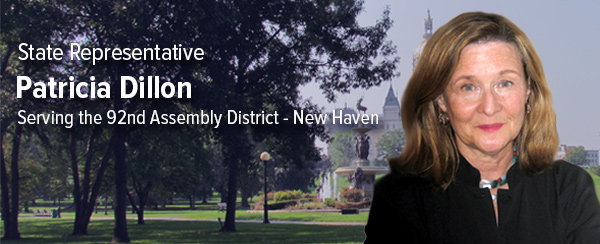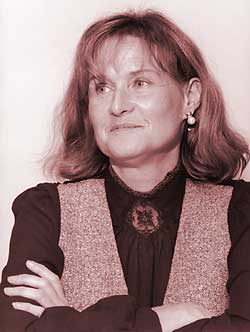
April 1, 2004
Can legislators stop Rowland’s budget chief from rushing ahead with overhauling the state’s public mental-health system -- and delivering it to a private company with a shaky track record?
by Dan Levine
Hartford Advocate
If the legislature says OK, Office of Policy and Management Secretary Marc Ryan will undertake the biggest revamp of Connecticut’s public mental health system in years.
And if the legislature doesn’t say OK, some observers fear Ryan will just do it anyway.
As the state Capitol universe swirls down Gov. John Rowland’s corruption toilet bowl, high-level negotiations are unfolding between Ryan and Democratic leaders over the shape of mental health services for Connecticut’s neediest citizens. Ryan wants to put all the state’s services for kids and adults under the control of one private contractor. Some legislators are trying to put the brakes on the plan. They fear it could lead to worse, or even non-existent care. One leading contender for the contract, a for-profit managed-care organization called ValueOptions, has a mixed track record when it comes to providing solid treatment, says state Rep. Art Feltman (D-Hartford), the Public Health Committee’s co-chair.
"No one who knows anything about mental health is going along with this," he says. Right now, the level of mental health services available depends on who pays the bills. If you are a parent on Medicaid, for example, your bills are picked up by the Department of Social Services. That means you get a completely different set of services than those given to single adults on general assistance, which are paid for by the Department of Mental Health and Addiction Services. |

Dillon: "Right now, we are shipping kids out of state like prisoners, and we could end
up shipping out more." -KATHLEEN CEI FILE PHOTO |
That’s because these two agencies cut different deals with separate managed-care providers. Same goes for the Department of Children and Families, which has its own arrangements with other treatment providers.
So Ryan wants to consolidate this entire patchwork into one uniform plan, which would give the same level of services to everyone across the three state agencies. Many mental-health advocates call this a good idea -- in theory. The end goal is to move more kids into community-based settings instead of large institutions and cut costs, the savings from which would be reinvested into the system to beef up services.
OPM would then sign a contract with a private administrator, who would control the day-to-day operations of the mental health system. The contractor would perform tasks like paying claims on time. It would also be the entity doctors call to get authorization to provide certain kinds of treatment.
That’s where the controversy starts. As it stands, Ryan has the clear legislative authority to merge services on the children’s side, the result of laws passed several years go. But state Senate President Kevin Sullivan (D-West Hartford) says it is unclear whether Ryan has the authority to lump in adults on Medicaid. Most observers believe he has no authority to include adults on general assistance.
Nevertheless, when OPM issued a request for proposals to find the private administrator who would run the system, it included all kids and adults, which Feltman takes as an indication that Ryan may opt to move forward regardless of what the legislature does. At a public hearing on March 11, Ryan told legislators on the Public Health Committee he prefers legislative authority.
When asked which companies submitted proposals, Ryan declined to comment. However, many people involved in the process believe ValueOptions has a lock on it, based on the contract’s size and ValueOptions’ leading role in the industry. Feltman fears the for-profit company would be prone to deny requests for care in order to hold down costs.
The public health chairman points to other states, including Arizona, where ValueOptions had come under public criticism for reaping millions of dollars in profits, allegedly at the expense of patient care. A non-profit administrator would be more likely to put patient care first, Feltman says.
"I don’t buy that," Ryan says. The company will be paid a straight administrative fee, regardless of their decisions on treatment, Ryan says, removing any incentive to deny care.
The success of privatization really depends on the quality of the government’s plans, rather than which company gets the contract, says Ira Burnim, legal director for the Bazelon Center for Mental Health Law, a national advocacy group.
"The right question is what are they actually trying to accomplish in terms of the system," Burnim says.
That’s what worries state Rep. Patricia Dillon (D-New Haven), chair of the Appropriations Health and Hospitals subcommittee. She doubts whether the proper community resources are in place to handle the kids who are eventually emptied from institutional settings.
"Right now, we are shipping kids out of state like prisoners, and we could end up shipping out more," she says, if the community-based programs are not in place. Likewise, Senate president Sullivan does not believe the resources are in place to execute the plans for children.
While Sullivan praises the administration for putting mental health reform on the table, he sounds less than enthusiastic about the actual plans. He tells the Advocate a gradual approach to reform would be a likely outcome in the legislature this year, rather than the full-fledged version of what Ryan wants. That means the OPM secretary would have to stretch the bounds of the law to go further.
"No one has tested the authority OPM has," Sullivan says. Yet.
Legislative Office Building, Room 4019
Hartford, CT 06106-1591
(860) 240-8585 | 1-800-842-8267
Patricia.Dillon@cga.ct.gov

